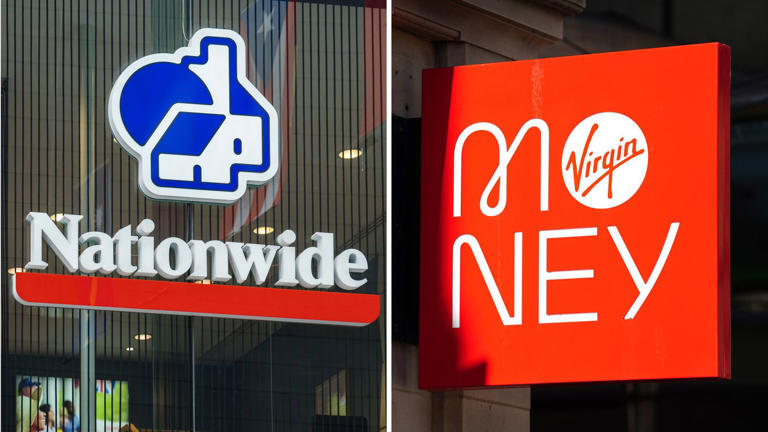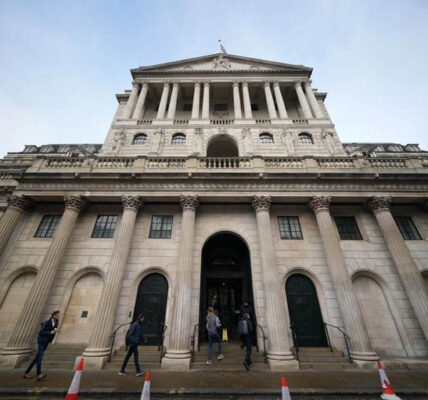Nationwide Virgin Money Takeover
Nationwide Building Society has officially completed its much-discussed acquisition of Virgin Money. This landmark deal, valued at £2.9 billion, has generated significant attention in the UK banking sector. Many have raised questions about what this means for customers and the future of both brands.

Overview of the Takeover
The announcement of the Nationwide Virgin Money takeover was made in March, when Nationwide revealed it had reached an agreement to purchase Virgin Money. While Virgin Money’s shareholders voted overwhelmingly—89%—in favor of the deal, the Nationwide members were not given the opportunity to vote. Nationwide justified this decision, stating that a vote was not legally required and that conducting one would be impractical given its vast membership base.
With the acquisition now finalized, the Virgin Money brand is expected to phase out by 2028, marking a significant change in the banking landscape. Virgin chief executive David Duffy has stepped down, and Chris Rhodes, the chief finance officer, will take over the leadership.
What Changes Can Customers Expect?
Branch Availability
One of the most immediate changes following the Nationwide Virgin Money takeover involves branch access. Virgin Money branches will now be included in Nationwide’s branch commitment. This means that all existing Nationwide and Virgin Money branches will remain open until at least the start of 2028. However, it’s important to note that customers will not yet be able to use Virgin Money branches for Nationwide transactions.
Nationwide has stated that it plans to gradually enhance the range of services available through these branches. However, no specific timeline has been provided for when these changes will take place.
Savings and Passbook Changes
Another significant aspect of the Nationwide Virgin Money takeover is how it will affect customers’ savings. Customers with accounts at both Nationwide and Virgin Money will continue to enjoy maximum protection under the Financial Services Compensation Scheme (FSCS). This means that customers will have protection up to £85,000 on each of their Nationwide and Virgin Money accounts since Virgin Money operates under a separate banking license.
However, a major change is coming for customers who still use passbooks. Nationwide has announced that it will phase out passbooks by February 2025, replacing them with a “modernized” savings wallet. Currently, only 2% of Nationwide’s 16 million customers still use passbooks, so this change aligns with broader trends in digital banking.
During an online AGM in July, Nationwide’s chief executive, Debbie Crosbie, confirmed the decision to move forward with this modernized savings wallet, aiming to enhance customer convenience and align with modern banking practices.
Mortgages: What to Expect
For customers who currently hold a Virgin Money mortgage, there won’t be any immediate changes. These home loans will continue as normal. However, as the Virgin Money brand is gradually phased out, it’s anticipated that Virgin mortgage holders will eventually transition to Nationwide mortgages. This will help streamline services under the Nationwide banner, making it easier for customers to manage their loans.
Enhanced Banking Services
With the Nationwide Virgin Money takeover, customers can look forward to an expansion in the range of services offered. Nationwide aims to capitalize on Virgin Money’s expertise in personal lending and credit cards. Additionally, there will be a focus on business banking and accounts designed for clubs and societies.
Kevin Parry, Nationwide’s chairman, emphasized that the building society remains a mutual organization owned by its members. He noted that all profits generated by Virgin Money will be reinvested for the benefit of customers. This commitment reinforces Nationwide’s ethos as a member-focused institution.
Financial Implications of the Acquisition
The financial aspects of the Nationwide Virgin Money takeover also present an interesting picture. In the last financial year, Virgin Money reported pre-tax profits of £345 million and announced distributions of around £270 million to its shareholders.
Market analysts have forecasted Virgin Money’s pre-tax profits to grow in 2024. Consequently, Nationwide anticipates that the acquisition will yield a 17% return on the purchase price. This positive outlook suggests that the merger could be a strategic move for Nationwide in enhancing its financial performance.
Looking Ahead
As Nationwide continues to integrate Virgin Money, customers can expect a period of adjustment. While some changes will take time, the ultimate goal is to create a more comprehensive banking experience for customers of both institutions. Nationwide’s commitment to maintaining branch availability and enhancing services should provide reassurance to current Virgin Money customers during this transition.
Conclusion
The Nationwide Virgin Money takeover marks a significant shift in the UK banking landscape. As the integration process unfolds, customers can anticipate a range of changes, from branch access to service offerings. With a focus on customer benefits and financial stability, Nationwide aims to leverage Virgin Money’s strengths to better serve its members.
In conclusion, the Nationwide Virgin Money takeover represents not just a change in ownership but also a commitment to enhancing customer experiences in the ever-evolving banking sector. As the merger progresses, it will be interesting to see how Nationwide implements these changes and what new offerings will emerge for its customers.
Related:
Nationwide £750,000 Loan Offer for First-Time Buyers: 3 Incredible Benefits You Can’t Miss!



